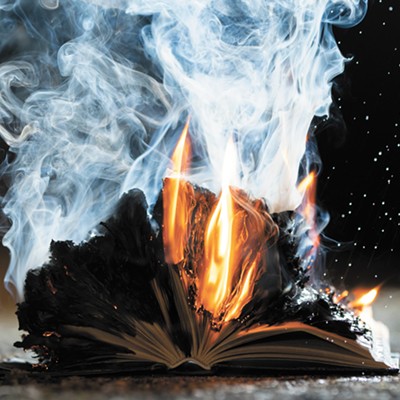Pondering how to honor Black History Month? I can think of no better way than to read a few great books about black people's experiences in America. Why? Because black history is American history and book shelves are filled with compelling stories, including heart-breaking tragedies and the horror of white-on-black injustice that has so permeated life in the United States.
Your local librarian will have suggestions for creating a do-it-yourself exploration of Black History Month. Here are mine:
Start with James Baldwin, of course. He was a prolific writer so there's lots to choose from. The Fire Next Time was a bestseller in 1963 and, more than half a century later, still sears with the voice of a black man who experienced what he called the "racial nightmare" of injustice and inhumane treatment in America.
Baldwin was a black intellectual of his time and some reviewers have tried to put the same label on Ta-Nehisi Coates, a contemporary writer who rejects that label, even though he has said he wanted to write like Baldwin. Desired or not, Coates deserves the label. Author of Between the World and Me and We Were Eight Years in Power, Coates also was for a decade a writer for The Atlantic. The latter book is a collection of articles from that magazine, fused with personal memoir-like introductions to each chapter. It all adds up to powerful writing that explodes the myth of America's story of freedom and independence by delving into another story, what he calls "the nostalgic moment's corrupt and unspeakable core" — slavery and its legacy.
An American Marriage, by Tayari Jones, is a good selection for readers who prefer modern fiction. In this beautifully written contemporary story, a young black man is wrongly imprisoned, forever changing the lives of three people and their dreams of middle-class life in America. Months after reading it, this story still haunts me.
But for deepest understanding of why Black History Month matters, turn to Isabel Wilkerson's The Warmth of Other Suns: The Epic Story of America's Great Migration. A highly touted book published in 2010, I scouted it in bookstores, but always left it on the shelf due to its hefty 500-plus pages. While on vacation a few months ago, I had time to spare and found a store where Wilkerson's book was featured. I bought it, dived in, and soon found myself in the midst of the "great migration," a silent pilgrimage from 1915 to 1970 when 6 million blacks left the South hoping to find better lives elsewhere.
Wilkerson is a former New York Times Pulitzer Prize-winning reporter. In Warmth of Other Suns, she weaves the separate lives and circumstances of three southerners — Ida Mae, George and Pershing — who become singular threads in the story of the migration.
This is a deeply reported masterpiece of harsh truth-telling layered with tenderness for the trio whose stories she tracks. Wilkerson's work grows out of the same personal experience and determination that drives the writing of Baldwin, Coates and so many other noted black writers. You see that in her dedication: "To my mother and the memory of my father, whose migration made me possible, and to the millions of others like them who dared to act upon their dreams."
Reading these books is a reminder that dreams are often fueled by a nightmare. George, in Wilkerson's book, grew up in Florida, where vigilantes lynched more black people between 1882 and 1930 than any other state. He was a bright boy and managed to get more education than most blacks but wound up working in the orange groves. He had the soul of an activist and organized workers for better pay, a dangerous activity that drove him out of Florida, which probably saved his life. Six years later, living in New York City, George learned of an activist friend who died at home after a bomb exploded in his bedroom where he was sleeping with his wife. The investigation determined the bomb was place by the Ku Klux Klan, but no one was ever charged or jailed for the murders.
You can't read these books and contemplate the black migration story of the last century without thinking about the current immigration debate in this country and coming away with a better understanding of why people leave a home in search of a new place. Those of us who live in a region with few minorities and a lesser impact from modern migration patterns have a compelling reason during Black History Month for reading these authors and myriad others: To confront the common desires that bind us to all humanity and to the history of our nation. As Baldwin wrote: "To accept one's past — one's history — is not the same thing as drowning in it; it is learning how to use it." ♦
Mindy Cameron is a former editor at the Seattle Times who now lives in Sandpoint, Idaho. She can be reached at [email protected].




















